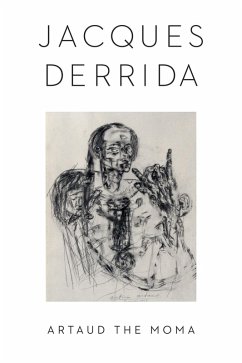
Broken Tablets (eBook, ePUB)
Levinas, Derrida, and the Literary Afterlife of Religion

PAYBACK Punkte
12 °P sammeln!
Over a span of thirty years, twentieth-century French philosophers Emmanuel Levinas and Jacques Derrida held a conversation across texts. Sharing a Jewish heritage and a background in phenomenology, both came to situate their work at the margins of philosophy, articulating this placement through religion and literature. Chronicling the interactions between these thinkers, Sarah Hammerschlag argues that the stakes in their respective positions were more than philosophical. They were also political. Levinas's investments were born out in his writings on Judaism and ultimately in an evolving conv...
Over a span of thirty years, twentieth-century French philosophers Emmanuel Levinas and Jacques Derrida held a conversation across texts. Sharing a Jewish heritage and a background in phenomenology, both came to situate their work at the margins of philosophy, articulating this placement through religion and literature. Chronicling the interactions between these thinkers, Sarah Hammerschlag argues that the stakes in their respective positions were more than philosophical. They were also political. Levinas's investments were born out in his writings on Judaism and ultimately in an evolving conviction that the young state of Israel held the best possibility for achieving such an ideal. For Derrida, the Jewish question was literary. The stakes of Jewish survival could only be approached through reflections on modern literature's religious legacy, a line of thinking that provided him the means to reconceive democracy. Hammerschlag's reexamination of Derrida and Levinas's textual exchange not only produces a new account of this friendship but also has significant ramifications for debates within Continental philosophy, the study of religion, and political theology.
Dieser Download kann aus rechtlichen Gründen nur mit Rechnungsadresse in A, D ausgeliefert werden.













